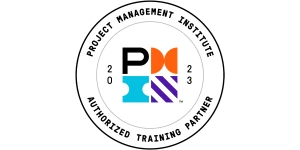Understanding the Most Important Elements of Total Quality Management (TQM)
Total Quality Management (TQM) is a management philosophy that strives to achieve the best possible results by centering all business activities and processes on customer satisfaction. Proper TQM implementation involves constant improvement and all members of the particular organization and expected to take part in the process. The main idea behind this approach is that the best way to long-term success is through providing a high quality product or service that meets the needs and requirement of the customer. Thus, everything in TQM is defined through the lens of customer satisfaction.
TQM has 8 core elements that are grouped together in four groups as part of a building metaphor:
First Group: Foundation
As every building requires a foundation, every business philosophy requires some value to inform its approach to the world and its own organization. TQM institutes three foundational elements to its metaphorical building that foster productive attitudes and atmosphere.
Ethics
Ethics is the study of right and wrong and TQM places importance on understanding what is the ethical thing to do both as an organization and as individuals in the context of the organization. As the organization recognizes the need to operate in a morally good way, it is expected to institute a clear code of conduct.
Integrity
While ethics is more concerned with knowing what is right, integrity focuses on acting according to the company values in a honest and open environment. Office drama, rumors or other forms of interpersonal hostility are to be frowned upon.
Trust
The successful implementation of TQM requires a relationship of trust among the individuals that are part of the organization. In order for teams to be able to improve and provide a high quality product or service to the customers, they need to work together in an atmosphere of trust. If that requirement is met, problem recognition, problem solution and decision making all become easier.
Second Group: Bricks
As the bricks are the main building block used to create and bear the weight of a house, the bricks in the TQM context rest on the foundation and support the whole structure.
Training
Training is essential for employees to be able to achieve high levels of quality and efficiency. Since TQM is an all-encompassing approach to business management, it requires all participants to receive the needed training from their superiors on how to as valuable to the organization and its customers as possible.
Teamwork
Achieving common goals and providing the highest level of customer service requires teams to work efficiently together. Individuals should know how to work together and the team environment should facilitate open discussions about both problems and solutions. There are 3 types of teams in a TQM organization: the temporarily formed Quality Improvement Teams and Problem Solving Teams and the more organic and long-lasting Natural Work Teams.
Leadership
While training and teamwork are essential for making member prepared to be a valuable part of an organization, leadership has a crucial role to play in harnessing that potential. All supervisors and managers should understand the TQM philosophy and methodology and should be able to implement them while clearly transmitting values, strategies, direction and goals to the teams they are responsible for.
Third Group: Mortar
Even when you have all the elements needed to construct an outstanding building, it is important for those elements to be bind together and this is the mortar’s job.
Communication
The all-encompassing mortar of the TQM building is communication. It starts from the foundation, surrounds the bricks and reaches the roof. The only way to continues improvement and optimal performance is for information and ideas to flow freely. Communication should the ever-present in the organization, but it should also involve all external entities like customers, partners and suppliers.
Fourth Group: Roof
What tops off a building is the roof which in the case of TQM is its last key element – recognition.
Recognition
This element involves the positive feedback and encouragement that both achievements and suggestions should result in inside the organization. All supervisors should look for and detect contributions and should provide recognition whenever they are made. This boosts both morale and performance. It gives member of the organization motivation to continue to participate productively in the TQM implementation.
Stop by and contact us at 6Sigma.us and find out how we can positively help you plan and change the culture and operations of your organization. We offer Six Sigma Green Belt and Six Sigma Black Belt training programs, as well as a Master Black Belt program.
SixSigma.us offers both Live Virtual classes as well as Online Self-Paced training. Most option includes access to the same great Master Black Belt instructors that teach our World Class in-person sessions. Sign-up today!
Virtual Classroom Training Programs Self-Paced Online Training Programs






